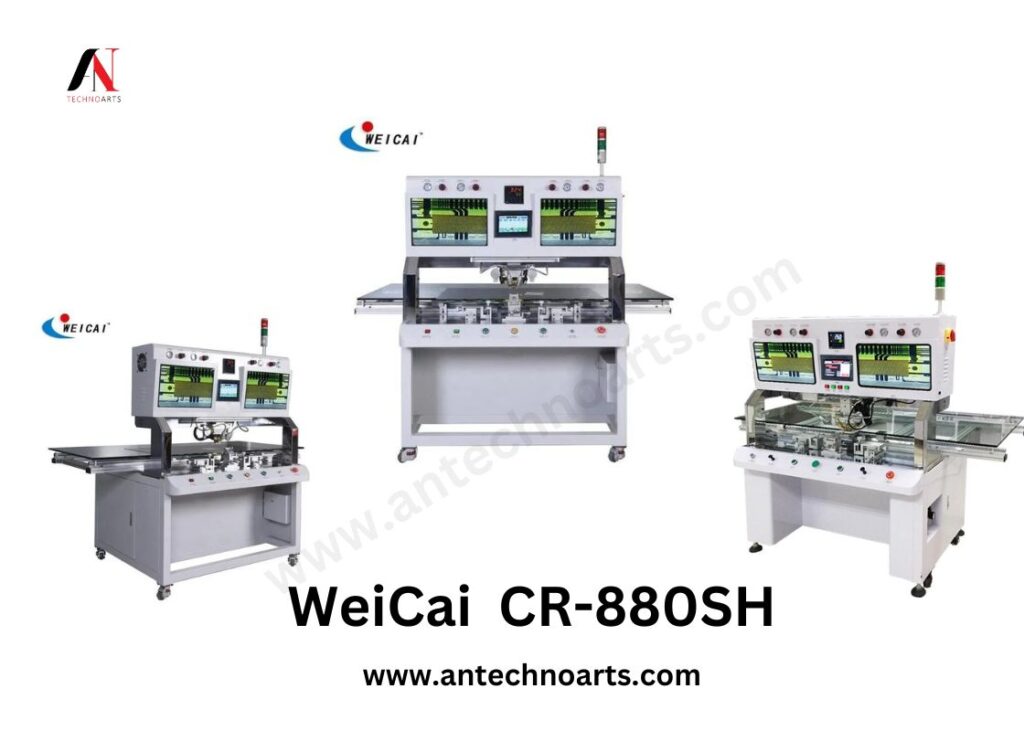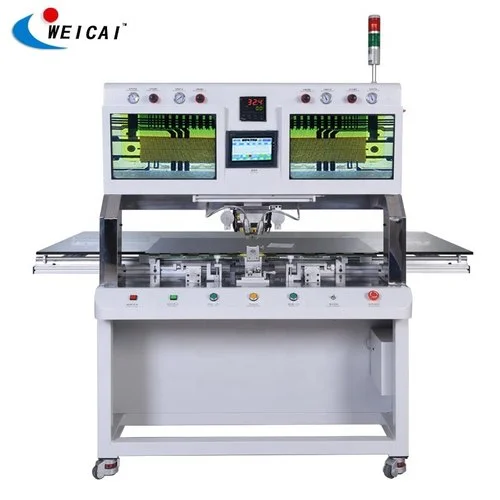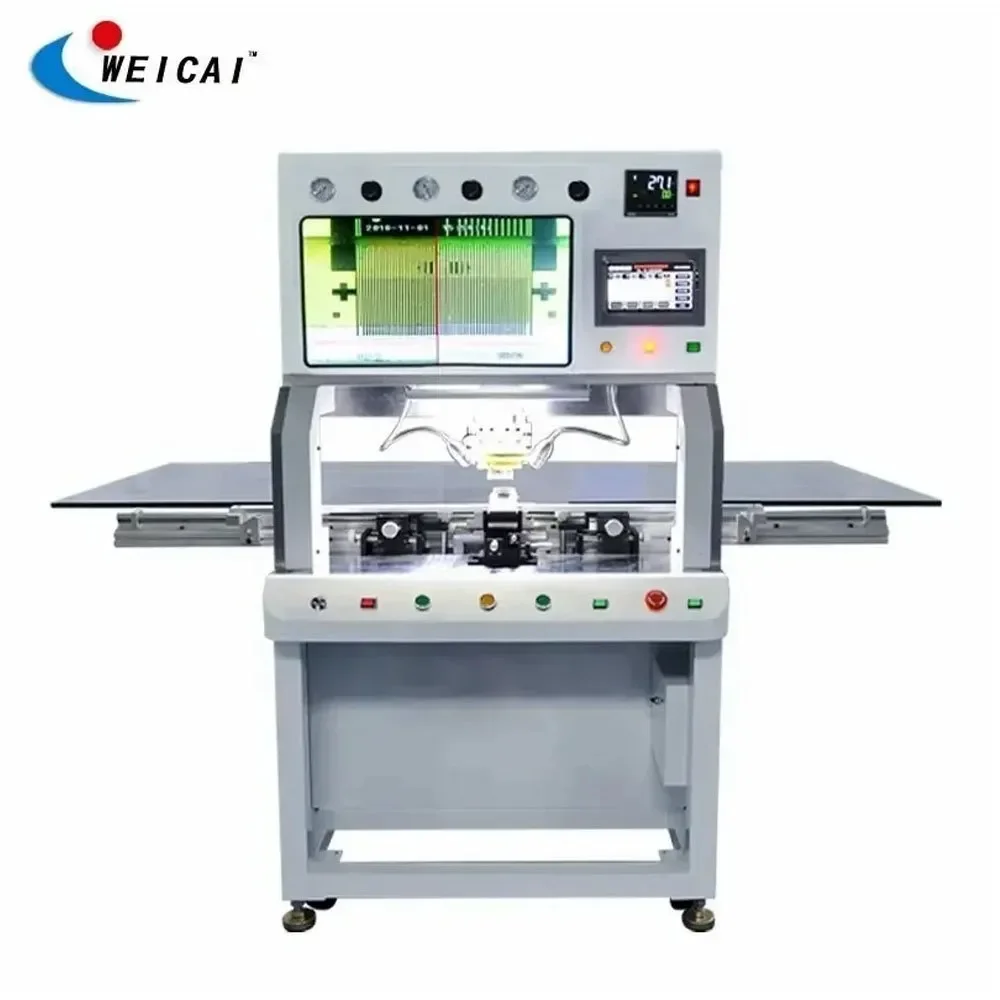In this guide, we’ll delve into the key components of LCD bonding machines, providing you with a comprehensive understanding of their intricate workings. Whether you’re an industry professional or simply curious about the technology, this guide is designed to serve as a valuable resource for anyone interested in WeiCai LCD bonding machines. So, let’s dive in and explore the essential elements that make these machines tick!
Liquid Crystal Displays (LCDs) are commonly a wide range of devices in today’s technological world, including smartphones, televisions, and medical equipment. The intricate process responsible for producing the vivid colors and clear images on LCD screens involves a variety of complex machinery. One essential component in this manufacturing process is the LCD bonding machine, which plays a critical role in seamlessly combining the various layers that make up an LCD panel.

- Bonding Head Rewritten:
The central component of an LCD bonding machine is the bonding head, which plays a crucial role in aligning the layers of the LCD panel accurately and using pressure and heat to fuse them together. It usually comprises heating elements, pressure sensors, and alignment mechanisms to guarantee precise positioning and consistent bonding throughout the panel. - Alignment System
Ensuring precise alignment of various layers in the LCD panel is crucial for achieving the best display quality. The alignment system in an LCD bonding machine employs sophisticated optical or mechanical methods to align the layers with accuracy at the micron level. This guarantees that every pixel on the display is correctly aligned, thereby reducing visual imperfections like dead pixels or color irregularities. - Temperature Control:
To securely bond the layers of an LCD panel, the use of heat is necessary to soften the adhesive materials and allow for proper bonding. The bonding machine is designed with heating elements that ensure a uniform distribution of heat across the panel, preventing damage to delicate components. The temperature is carefully regulated through the use of sensors and feedback systems, ensuring the ideal bonding temperature is maintained throughout the process. - Pressure Regulation System:
Maintaining consistent pressure when bonding is crucial for achieving effective adhesion between layers and preventing the formation of air bubbles that may affect display quality. LCD bonding machines come with pressure regulation systems that control the pressure exerted by the bonding head accurately. This guarantees uniform pressure distribution throughout the panel, leading to impeccable display functionality. - Vacuum System:
Ensuring a pristine display surface requires a clean and dust-free environment during the bonding process. To achieve this, a vacuum system is integrated into the bonding machine, which removes air and particles from the bonding area, creating a controlled environment that promotes high-quality bonding. This process helps prevent imperfections in the bonded layers, resulting in a flawless display surface. - System Control:
The system control acts as the bonding machine, coordinating the functions of different parts accurately. It utilizes sophisticated control algorithms and sensors to oversee critical factors like temperature, pressure, and alignment, making immediate adjustments to enhance the bonding results. Operators can easily configure settings, track the process, and address any problems that might occur while bonding through intuitive interfaces. - Safety Features:**
Ensuring the safety of operators is crucial when using LCD bonding machines due to the extreme temperatures and pressures they operate under. These machines are designed with strong safety measures like emergency stop controls, thermal detectors, and interlocks to avoid mishaps and shield operators from harm. Extensive safety guidelines and training programs are in place to provide operators with the assurance that their safety is a top priority.
In summary, LCD bonding machines are indispensable in the production of high-quality LCD panels, as they facilitate the flawless integration of various layers. By examining the crucial components and their functions, manufacturers of WeiCai LCD Panel Repair Bonding Machine can refine the bonding process to deliver exceptional display performance and reliability. As technology advances, we can expect improvements in LCD bonding machines to further optimize efficiency, precision, and innovation in the manufacturing of state-of-the-art display devices.



Excellent after sells and service by AN Technoarts.
Thanks sir. We always get better our services day by day. For our clients.